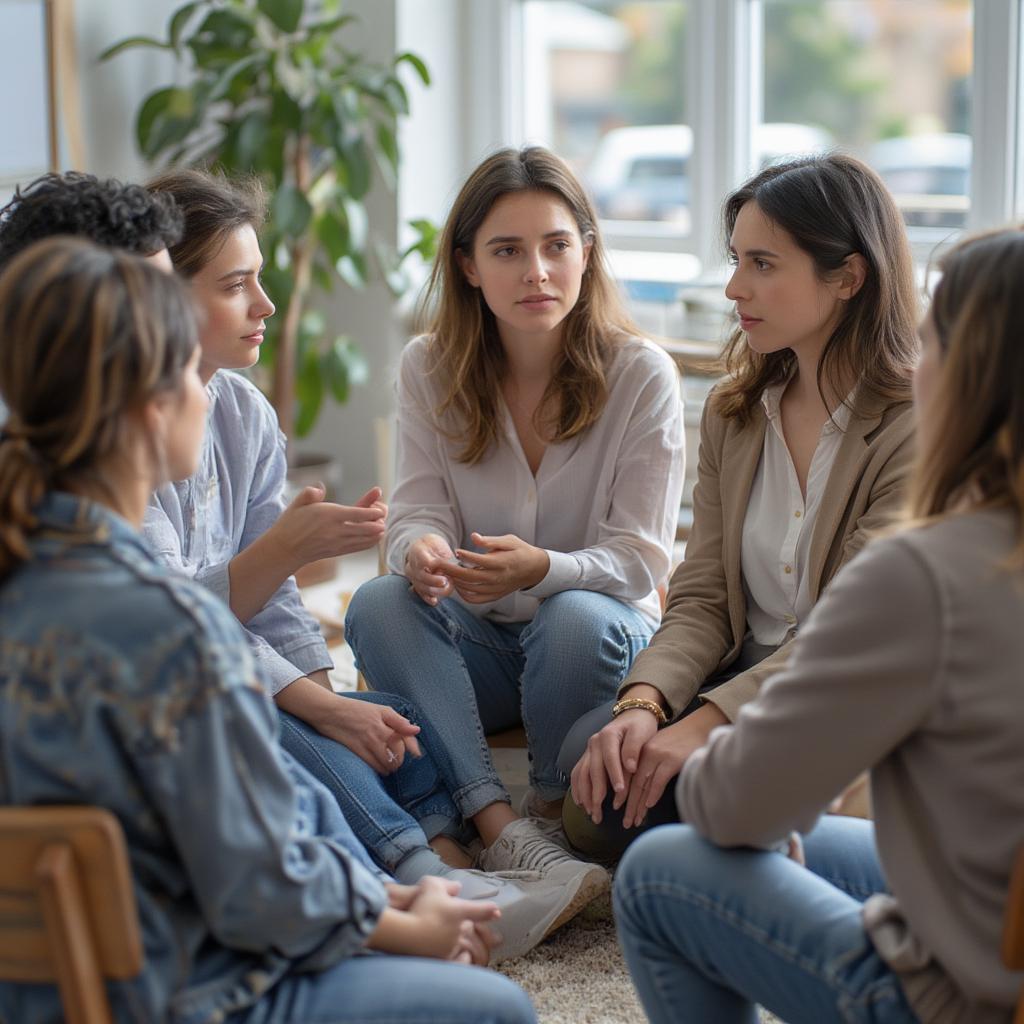Feeling unloved can be a deeply isolating and painful experience. When you don’t feel loved by anyone, it can impact your self-worth, your relationships, and even your overall well-being. If you’re struggling with these feelings, know that you’re not alone, and there are steps you can take to navigate this challenging time. This article explores the reasons behind these feelings and provides practical strategies to cultivate self-love and build stronger connections.
Understanding Why You Might Feel Unloved
Sometimes, the feeling of being unloved stems from external factors, such as strained relationships or a lack of social connection. Other times, the root lies within, shaped by negative self-perception or past experiences. Recognizing the source of these feelings is the first step towards healing and growth. Are you struggling with self-esteem issues? Have you experienced recent loss or rejection? Are you surrounded by negativity? These are some of the questions that can help you pinpoint the cause of your feelings.
Cultivating Self-Love: The Foundation of Feeling Loved
Perhaps the most crucial step when you don’t feel loved by anyone is to learn to love yourself. This isn’t about vanity or narcissism; it’s about recognizing your inherent worth and treating yourself with kindness and compassion.
- Practice Self-Care: Engage in activities that nourish your mind, body, and soul. This could include exercise, meditation, spending time in nature, pursuing hobbies, or simply enjoying a quiet evening at home.
- Challenge Negative Self-Talk: Identify negative thoughts and replace them with positive affirmations. When you catch yourself thinking “I’m not good enough,” try reframing it as “I am worthy of love and happiness.”
- Celebrate Your Strengths: Acknowledge your talents and accomplishments, no matter how small they may seem. Focusing on your positive qualities can boost your self-esteem and remind you of your value.
- Set Healthy Boundaries: Learn to say no to things that drain your energy or compromise your well-being. Protecting your time and emotional space is essential for self-love.
Building Meaningful Connections: Reaching Out and Letting In
While self-love is foundational, human connection is also vital. Building strong, supportive relationships takes time and effort, but the rewards are immeasurable.
- Nurture Existing Relationships: Invest in the relationships you already have. Reach out to friends and family, express your appreciation, and spend quality time together.
- Seek New Connections: Join clubs, take classes, or volunteer for causes you care about. These activities provide opportunities to meet new people who share your interests.
- Be Open to Receiving Love: Sometimes, we unknowingly push people away or create barriers that prevent us from receiving love. Practice vulnerability and allow yourself to be loved and supported.
- Focus on Giving: Shift your focus from feeling unloved to showing love to others. Acts of kindness and generosity can foster positive connections and create a sense of belonging.
 Finding Support and Connection
Finding Support and Connection
When to Seek Professional Help
If feelings of being unloved persist or become overwhelming, seeking professional help is a sign of strength, not weakness. A therapist can provide guidance and support as you navigate these complex emotions.
“When individuals feel chronically unloved, it can significantly impact their mental health,” says Dr. Emily Carter, a licensed clinical psychologist. “Seeking therapy can provide a safe and supportive space to explore these feelings and develop coping strategies.”
What to Do When You Feel Unloved by Your Partner
Feeling unloved by a romantic partner is particularly challenging. Open communication, couples therapy, and individual self-reflection can help address the underlying issues.
“In romantic relationships, feeling unloved often stems from unmet needs or communication breakdowns,” adds Dr. Carter. “Addressing these issues directly is crucial for rebuilding connection and intimacy.”
 Communicating in a Relationship
Communicating in a Relationship
Conclusion
When you don’t feel loved by anyone, remember that you are worthy of love and belonging. Cultivating self-love, building meaningful connections, and seeking professional support when needed are essential steps toward healing and creating a more fulfilling life. Don’t give up on yourself; embrace the journey of self-discovery and connection, and remember you are not alone.
FAQ
- Is it normal to feel unloved sometimes? Yes, it’s perfectly normal to experience feelings of being unloved occasionally. Life’s challenges and relationship dynamics can contribute to these feelings.
- How can I tell if I’m truly unloved or if it’s just my perception? Self-reflection and honest conversations with trusted individuals can help you gain clarity on the source of your feelings.
- What if I’ve tried everything and still feel unloved? Consider seeking professional help from a therapist or counselor. They can provide personalized guidance and support.
- How long does it take to overcome feelings of being unloved? Healing is a personal journey, and there’s no set timeline. Be patient with yourself and celebrate small victories along the way.
- Can I be happy even if I don’t feel loved by others? Yes, happiness is an inside job. While healthy relationships contribute to well-being, cultivating self-love and finding joy in your own company are crucial for lasting happiness.
- What if my family doesn’t make me feel loved? It’s important to establish healthy boundaries and prioritize your own well-being. Seeking support from friends, chosen family, or a therapist can help you navigate these challenging family dynamics.
- How can I build self-esteem when I feel unworthy of love? Focus on your strengths, challenge negative self-talk, and practice self-compassion. Small acts of self-care and celebrating your accomplishments can gradually build self-esteem.
Related Questions & Articles
- How to cope with loneliness
- Building self-confidence
- Improving communication skills
- Finding your purpose in life
- Strengthening existing relationships
Need support? Contact us at Email: contact@daiduongtranhba.com or visit us at Michigan Ave, Suite 3100, Chicago, IL 60611, USA. We have a 24/7 customer support team.


